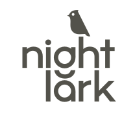In general, anything that challenges your physical and/or mental capacities is great for sleep.
There’s strong evidence showing that many types of exercise — everything from yoga to strength training to endurance exercise — improve multiple measures of sleep, including time taken to fall asleep and both objective and subjective measures of sleep quality. The most important thing is to do physical activities that you enjoy and will therefore keep up over time. This said, a mix of different types of activities is likely best, and including some resistance training for all major muscle groups is especially important to warding off frailty and loss of independence.
Doing cognitively taxing tasks can also support your sleep. Interestingly, the brain circuits most engaged during a given activity show the deepest sleep-like activity later, so doing a variety of hard tasks will encourage deep sleep in many parts of the brain. In turn, doing difficult tasks is clearly protective against various ailments, such as dementia.
Note that there are activities that meaningfully challenge your body and brain concurrently. Dance classes, for instance, are great in that they require physical activity, timing, and coordination. They also tend to be done with other people, which is particularly relevant to your wellbeing!
1. Stop Napping During The Day To Sleep Better At Night
As you age, you might increasingly feel the urge to nap. Napping can be attractive, especially if you’ve not been sleeping well at night. However, if you’re struggling to sleep well at night, you should stop napping unless you’re taking a short nap for safety reasons (before driving, for example). The reason is that even a short nap will reduce a lot of the sleep “pressure” or “hunger” for sleep that’s accumulated in your body during prior wakefulness. This pressure promotes deep sleep, so if you nap during the day then you’ll probably then take longer to fall asleep at night and your sleep will be less deep too.
2. If You’re Waking Frustratingly Earlier, Change When You’re Exposed To Bright Light
Your sleep timing is gated by the timing of your body’s clock system. The timing of the master clock in this system is most affected by when your eyes are exposed to bright light and darkness, respectively.
To shift your body’s clock and hence your sleep later, minimise your exposure to light in the 2 hours after you wake in the morning. If you’re indoors at this time, keep the lights dim and avoid daylight. If you’re outdoors, wear sunglasses.
The corollary of this is that if you want to delay your clock, you should increase your exposure to bright light late in your waking day. Specifically, there’s a time window between about 4 hours before and 90 minutes before your target bedtime when you should get more bright light. At this time, daylight is best, if the sun is up. If not, turn on the overhead lights to their strongest setting. To further delay your clock, you could try doing some moderate exercise during this time window too.
3. Address Menopause-Related Sleep Difficulties
There are many things you can do to counter menopause symptoms that disrupt sleep, including the insomnia strategies we addressed in the first and second articles in this series and the temperature-related tips described in the third article. During menopause, it’s particularly important to have bedding that keeps you cool. Their Smart Temperature collection harnesses advanced HeiQ® technology to dissipate heat as temperature rises, keeping you near the optimal in-bed temperature when the temperature would otherwise be rising.
Hormone replacement therapy (HRT) can help with sleep disturbances during menopause. You might want to discuss this with your doctor if you haven’t already done so. HRT is not for everyone — for example, if you have a family history of hormone-sensitive cancers, such as breast cancer, it might not be for you. However, it does dramatically improve the quality of life of some postmenopausal women.
Finally, sleep apnoea becomes more common following the menopause, perhaps in part because of changes in body fat distribution. For more on identifying and treating this sleep disorder, please refer to the second article in this series.





